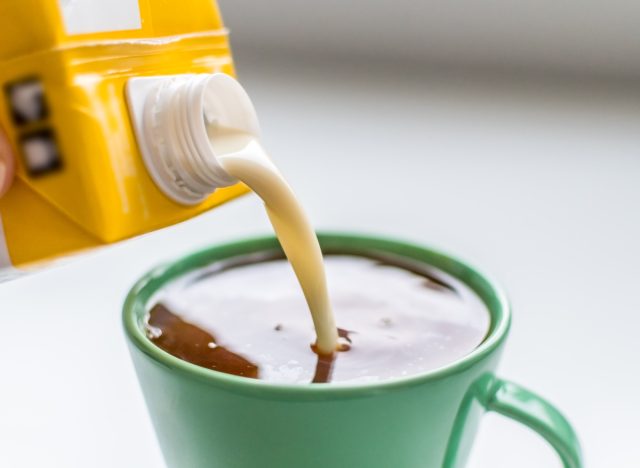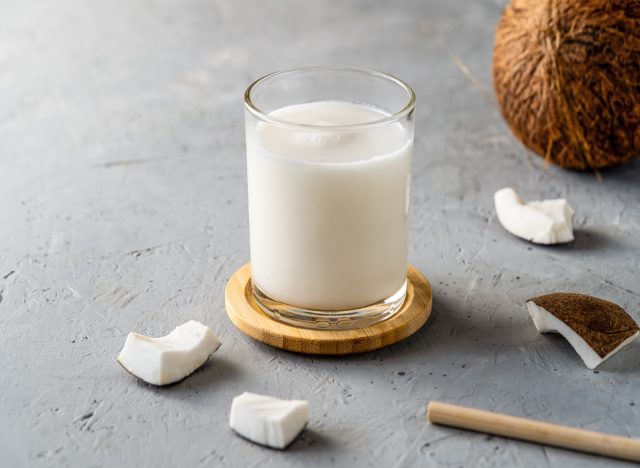7 Plant-Based Milk Alternatives to Skip at the Store Today
Navigating Non-Dairy Milk: A Wellness Guide
As more people transition to plant-based diets or seek alternatives due to lactose intolerance, the non-dairy milk aisle is bursting with choices. However, navigating through these options can be overwhelming. With some brands packed with sugars and additives, how do you make a health-conscious choice? In this guide, we’ll explore the best and worst non-dairy milk options, backed by insights from nutrition experts.
- Advertisement -
Understanding Non-Dairy Milk
Non-dairy milk can be a wonderful alternative for those looking to reduce animal product consumption. While it offers a range of flavors and textures, there are significant differences in nutritional value. Let’s dive into popular varieties, their pros and cons, and expert recommendations to ensure you make a well-informed decision for your health.
The Lowdown on Popular Non-Dairy Milks
Cashew Milk: The Creamy Option
Cashew milk is adored for its creamy texture. However, it often includes added stabilizers like guar gum and xanthan gum, which can cause digestive issues for some. “While cashew milk is low in protein, the added artificial nutrients are meant to mimic the nutritional profile of real dairy,” says Candice van Eeden, a holistic nutrition coach. If you’re sensitive to additives, it’s best to tread cautiously.
Sweetened Vanilla Almond Milk: The Sugary Friend

Almond milk is often sweetened and flavored for a delicious treat. However, a serving can contain up to 13 grams of added sugar. Tiffany Bruno, MS, RDN, recommends opting for the unsweetened version to keep unnecessary sugar at bay. Remember, while almond milk can help reduce sugar intake compared to cow’s milk, moderation is still key.
Oat Milk: The Crowd-Pleasing Favorite

Oat milk has exploded in popularity, especially as a coffee creamer. However, it can stack up the calories fast, especially when poured generously. “Just be mindful of portion sizes,” advises Bruno. Oat milk can work well in your morning coffee, but consider complementing it with a protein source to balance your breakfast.
Rice Milk: The Light Choice

Rice milk is often enjoyed for its light taste, but it lacks protein. “For those attempting to increase protein intake, rice milk won’t fulfill that need,” points out Kathleen Benson, a certified sports dietitian. If you prefer the flavor or texture, make sure to combine it with other protein-rich foods in your meals.
Sweetened Hemp Milk: The Nutrient Powerhouse to Avoid

Hemp milk has a unique flavor and offers omega-3 fatty acids. However, sweetened versions can defeat the purpose, as they often come loaded with sugar. Van Eeden cautions against sweetened options if you’re looking to reap the health benefits of hemp. Always choose unsweetened varieties for the most nutrition.
Oat Milk: The Love-Hate Relationship

Oat milk has a delightful taste that works well in cereals. However, Benson warns against pairing it with carb-heavy cereals without a protein source. For balanced nutrition, consider adding eggs or yogurt to your breakfast routine.
Coconut Milk: The Flavorful But Not Nutritional Star

Loved for its rich flavor in Asian dishes, coconut milk offers little in terms of nutritional benefits compared to other non-dairy alternatives. “Its low protein and high sugar levels can lead to blood sugar spikes,” explains van Eeden. Use sparingly in your cooking and balance your diet with other nutritious foods.
Key Takeaways for Your Non-Dairy Milk Choices
- Limit added sugars: Always check labels to avoid excess sugar, especially with sweetened varieties.
- Look for unsweetened options: They are often lower in calories and sugars while still providing excellent taste.
- Check protein content: Certain non-dairy milks like rice and cashew milk lack protein, so ensure you compensate with other food sources.
- Focus on whole food diets: Pair your milk with a variety of whole foods for balanced nutrition.
Conclusion
Choosing the best non-dairy milk for your wellness journey involves more than just taste—it requires an understanding of the nutritional makeup of each option. As we continue to embrace diverse dietary choices, let’s focus on making informed decisions by reading labels, combining foods wisely, and consulting with nutrition experts when necessary.
Remember, every small change counts toward a healthier, happier life. Cheers to your journey in finding the right non-dairy milk for you!
By Ali Musa
Axadle Wellness Desk – Health & Nutrition Monitoring
